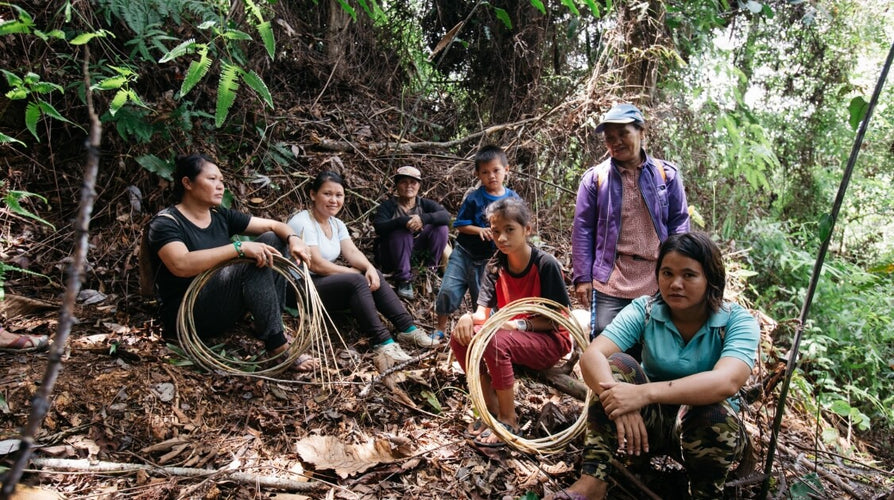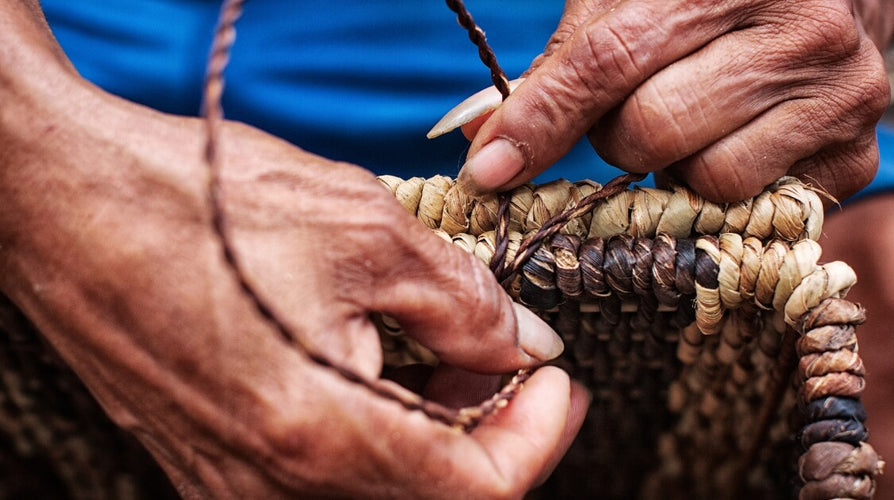In the Sarawak region of Borneo Island, surrounded by dense green rainforest and steep limestone mountains, indigenous tribes of the Bidayuh come together during the low agriculture season to weave a variety of traditional baskets.
Plaited by women and elders, these versatile and distinctive baskets reflect agrarian values through the utilitarian designs and use of natural resources. Tribal patterns, traditional methods, and a love for natural material inspired the crafting of these intricately woven containers.
The identity of different dialects group within the Bidayuh people are represented through unique and recognizable patterns, particularly on the characteristic Bidayuh reaping and harvesting baskets. Although the areas in which they weave have been adversely affected by overdevelopment, NEEPA HUT provides an opportunity for these women to earn a fair and sustainable income, and to share their vibrant traditions across borders.

The nomadic Penan weavers practice their rattan basketry craft in tune with the magnificent nature which surrounds them. Residing in the depths of the rainforest in the Kuba'An Puak region of Borneo Island, some weavers choose to come out of the jungle only to bring their crafts.
Showing admirable resourcefulness, the Penans gather raw materials from their surroundings. To this day, only traditional tools are used, such as machetes, and natural methods are applied to treat materials, such as seeds and leaves for the dyeing process.
Rattan crafting and basketry practices are supplemental source of income for many families whom are agricultural farmers. The sustainability of their old-style crafting practice is in danger. Each handcrafted product captures the soul of the rainforest and its community. With one weave at a time, we’re helping the Penan Weavers continue to share their story and craft throughout generations.

In 2013, Typhoon Haiyan ravaged the rural villages in the Visayas Islands in the Philippines. With help from local social entrepreneurs, communities of artisan weavers came together to restore their homes and livelihoods using the traditional crafts that had sustained generations before them.
NEEPA HUT has adopted these communities and aims to provide necessary supplemental income for artisans between planting and harvest season. We invest in our artisans by providing down payments, rather than loans, to supply weavers with raw materials. Your support sustains every part of the production process—from funding the harvest of the grass, commissioning mats and embroidered designs, and assembling the finished product—and feeds the artisans who take pride in their work.
